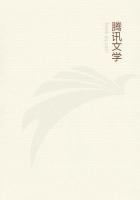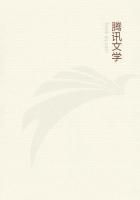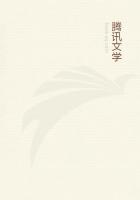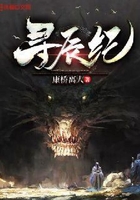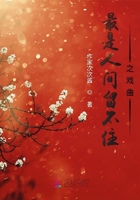x., 5.It appears from this passage, and from other parts in the book of Samuel, that the word prophet was confined to signify poetry and music;for the person who was supposed to have a visionary insight into concealed things, was not a prophet but a seer, [I know not what is the Hebrew word that corresponds to the word seer in English; but I observe it is translated into French by Le Voyant, from the verb voir to see, and mhich means the person who sees, or the seer.-- Author.
The Hebrew word for Seer, in 1 Samuel ix., transliterated, is chozeh, the gazer, it is translated in Is.xlvii.13, "the stargazers." -- Editor.]
(i Sam, ix.9;) and it was not till after the word seer went out of use (which most probably was when Saul banished those he called wizards) that the profession of the seer, or the art of seeing, became incorporated into the word prophet.
According to the modern meaning of the word prophet and prophesying, it signifies foretelling events to a great distance of time; and it became necessary to the inventors of the gospel to give it this latitude of meaning, in order to apply or to stretch what they call the prophecies of the Old Testament, to the times of the New.But according to the Old Testament, the prophesying of the seer, and afterwards of the prophet, so far as the meaning of the word "seer" was incorporated into that of prophet, had reference only to things of the time then passing, or very closely connected with it; such as the event of a battle they were going to engage in, or of a journey, or of any enterprise they were going to undertake, or of any circumstance then pending, or of any difficulty they were then in; all of which had immediate reference to themselves (as in the case already mentioned of Ahaz and Isaiah with respect to the expression, Behold a virgin shall conceive and bear a son,) and not to any distant future time.It was that kind of prophesying that orresponds to what we call fortune-telling; such as casting nativities, predicting riches, fortunate or unfortunate marriages, conjuring for lost goods, etc.; and it is the fraud of the Christian church, not that of the Jews, and the ignorance and the superstition of modern, not that of ancient times, that elevated those poetical, musical, conjuring, dreaming, strolling gentry, into the rank they have since had.
But, besides this general character of all the prophets, they had also a particular character.They were in parties, and they prophesied for or against, according to the party they were with; as the poetical and political writers of the present day write in defence of the party they associate with against the other.
After the Jews were divided into two nations, that of Judah and that of Israel, each party had its prophets, who abused and accused each other of being false prophets, lying prophets, impostors, etc.
The prophets of the party of Judah prophesied against the prophets of the party of Israel; and those of the party of Israel against those of Judah.This party prophesying showed itself immediately on the separation under the first two rival kings, Rehoboam and Jeroboam.The prophet that cursed, or prophesied against the altar that Jeroboam had built in Bethel, was of the party of Judah, where Rehoboam was king; and he was way-laid on his return home by a prophet of the party of Israel, who said unto him (i Kings xiii.) "Art thou the man of God that came from Judah? and he said, I am." Then the prophet of the party of Israel said to him "I am a prophet also, as thou art, [signifying of Judah,] and an angel spake unto me by the word of the Lord, saying, Bring him back with thee unto thine house, that he may eat bread and drink water; but (says the 18th verse) he lied unto him." The event, however, according to the story, is, that the prophet of Judah never got back to Judah; for he was found dead on the road by the contrivance of the prophet of Israel, who no doubt was called a true prophet by his own party, and the prophet of Judah a lying brophet.
In 2 Kings, iii., a story is related of prophesying or conjuring that shews, in several particulars, the character of a prophet.Jehoshaphat king of Judah, and Joram king of Israel, had for a while ceased their party animosity, and entered into an alliance; and these two, together with the king of Edom, engaged in a war against the king of Moab.After uniting and marching their armies, the story says, they were in great distress for water, upon which Jehoshaphat said, "Is there not here a prophet of the Lord, that we may enquire of the Lord by him? and one of the servants of the king of Israel said here is Elisha.[Elisha was of the party of Judah.] And Jehoshaphat the king of Judah said, The word of the Lord is with him." The story then says, that these three kings went down to Elisha;and when Elisha [who, as I have said, was a Judahmite prophet] saw the King of Israel, he said unto him, "What have I to do with thee, get thee to the prophets of thy father and the prophets of thy mother.Nay but, said the king of Israel, the Lord hath called these three kings together, to deliver them into the hands of the king of Moab," (meaning because of the distress they were in for water;) upon which Elisha said, "As the Lord of hosts liveth before whom I stand, surely, were it not that I regard the presence of Jehoshaphat, king of Judah, I would not look towards thee nor see thee." Here is all the venom and vulgarity of a party prophet.
We are now to see the performance, or manner of prophesying.
Ver.15."Bring me," (said Elisha), "a minstrel; and it came to pass, when the minstrel played, that the hand of the Lord came upon him." Here is the farce of the conjurer.Now for the prophecy: "And Elisha said, [singing most probably to the tune he was playing], Thus saith the Lord, Make this valley full of ditches; "which was just telling them what every countryman could have told them without either fiddle or farce, that the way to get water was to dig for it.

